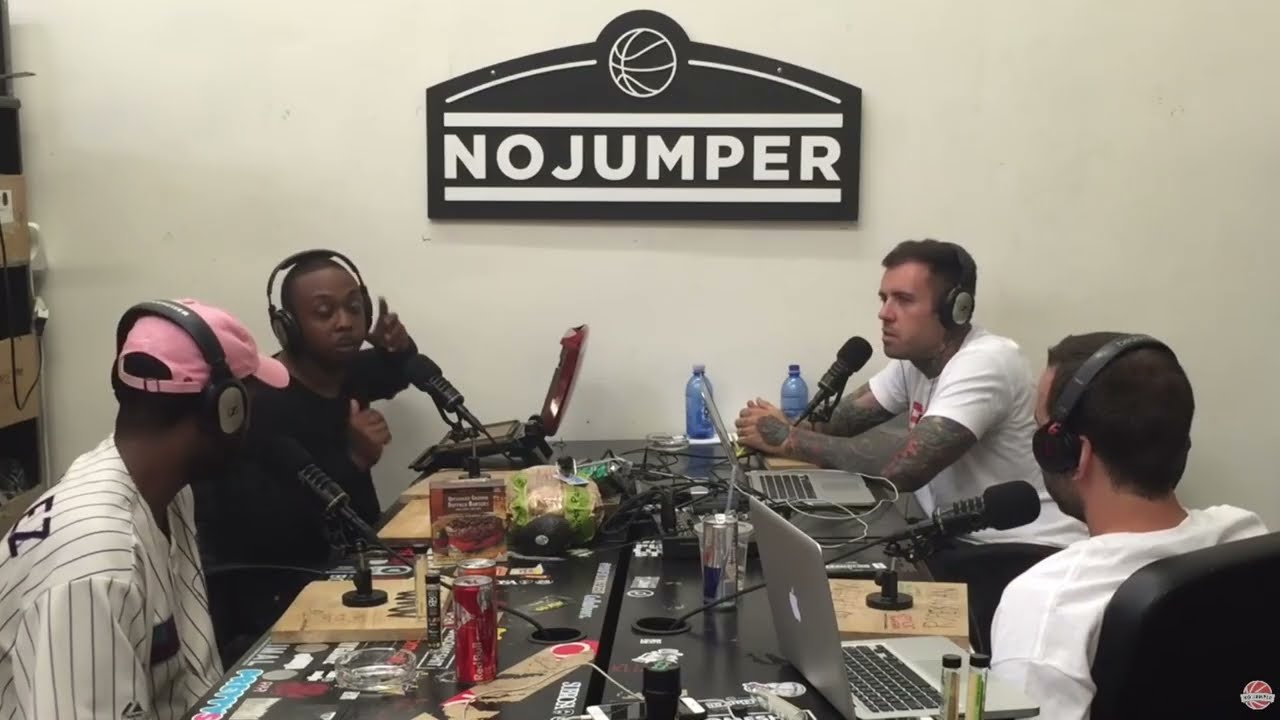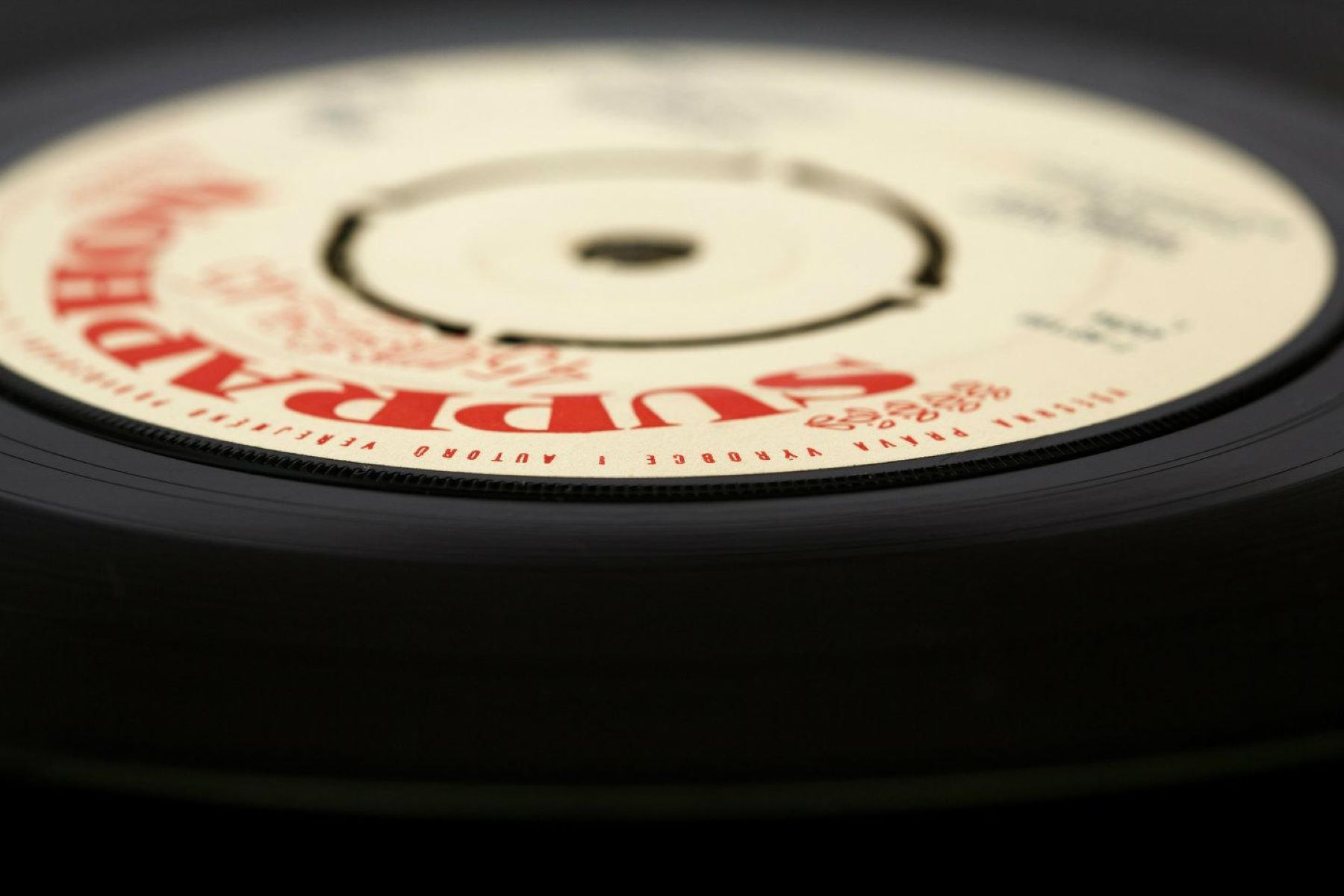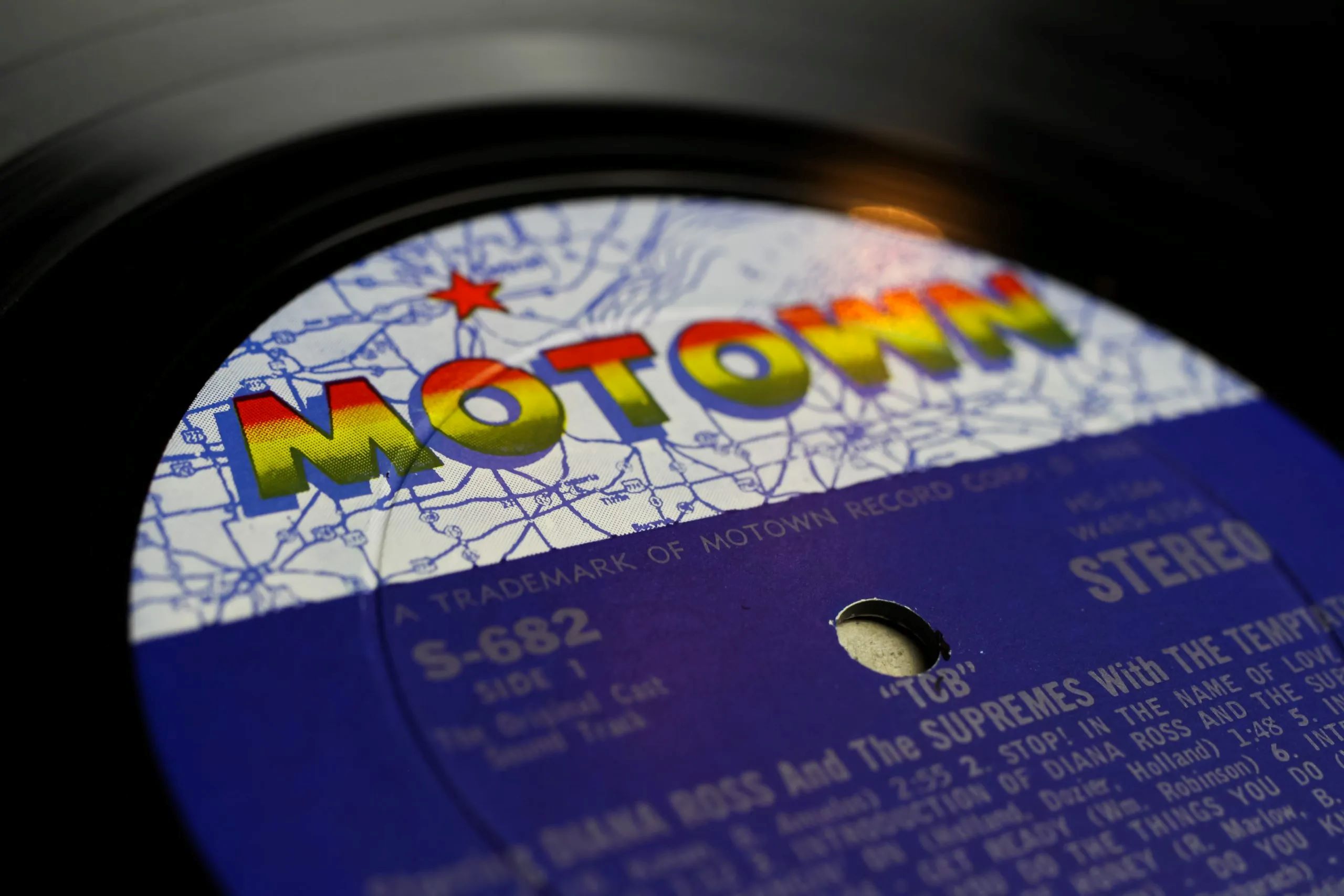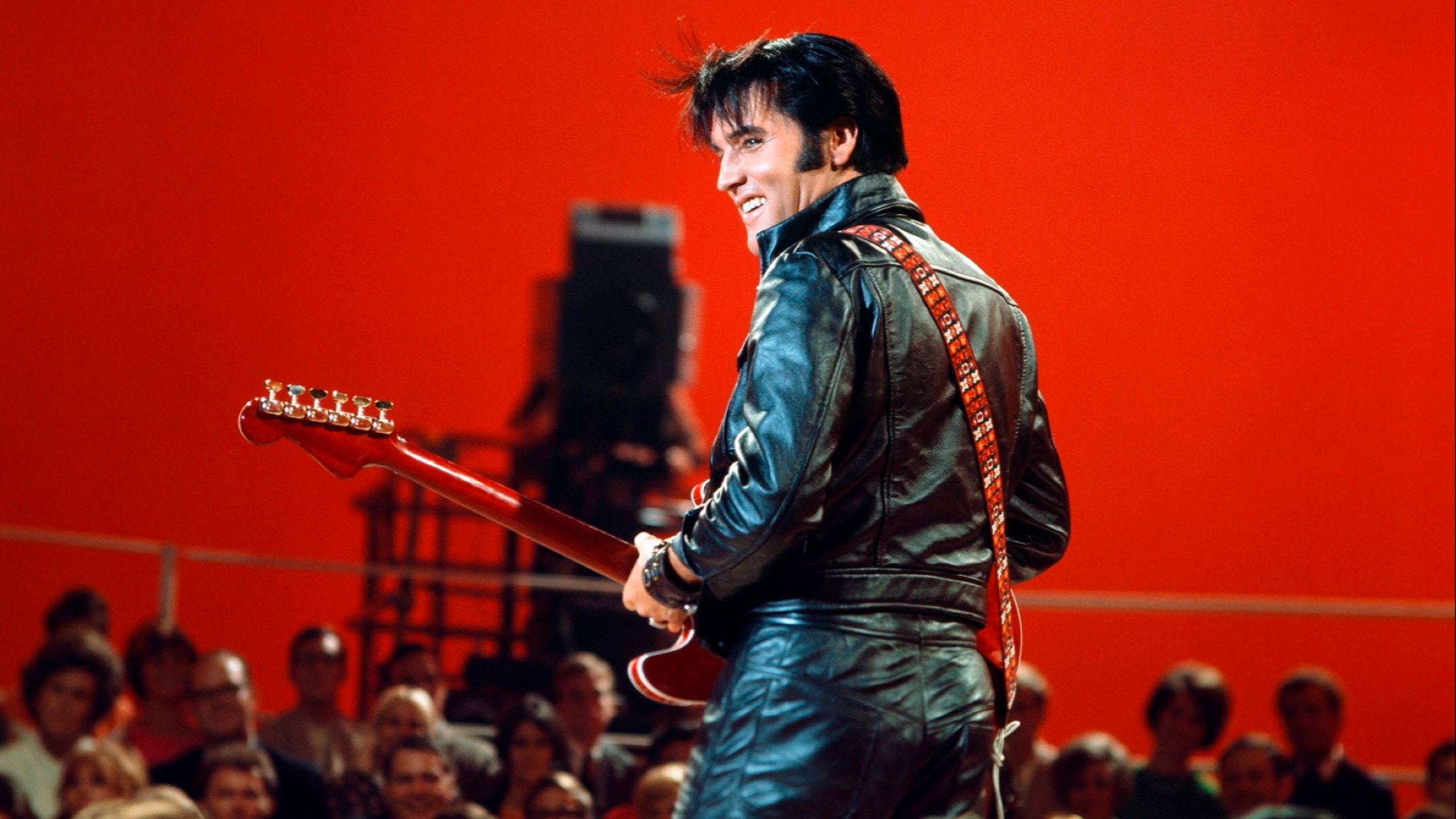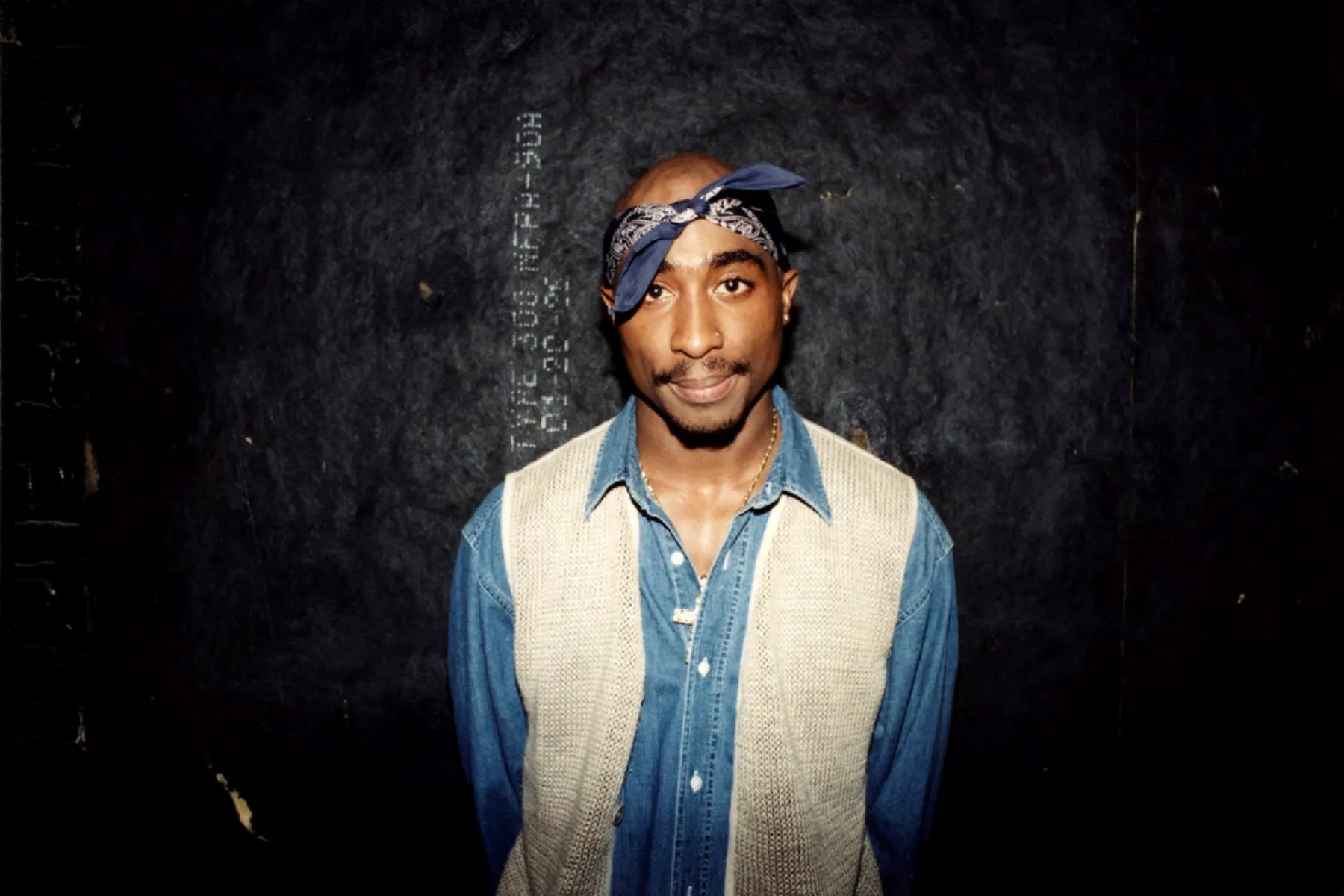Home>Production & Technology>Record Label>Who Owns Def Jam Record Label
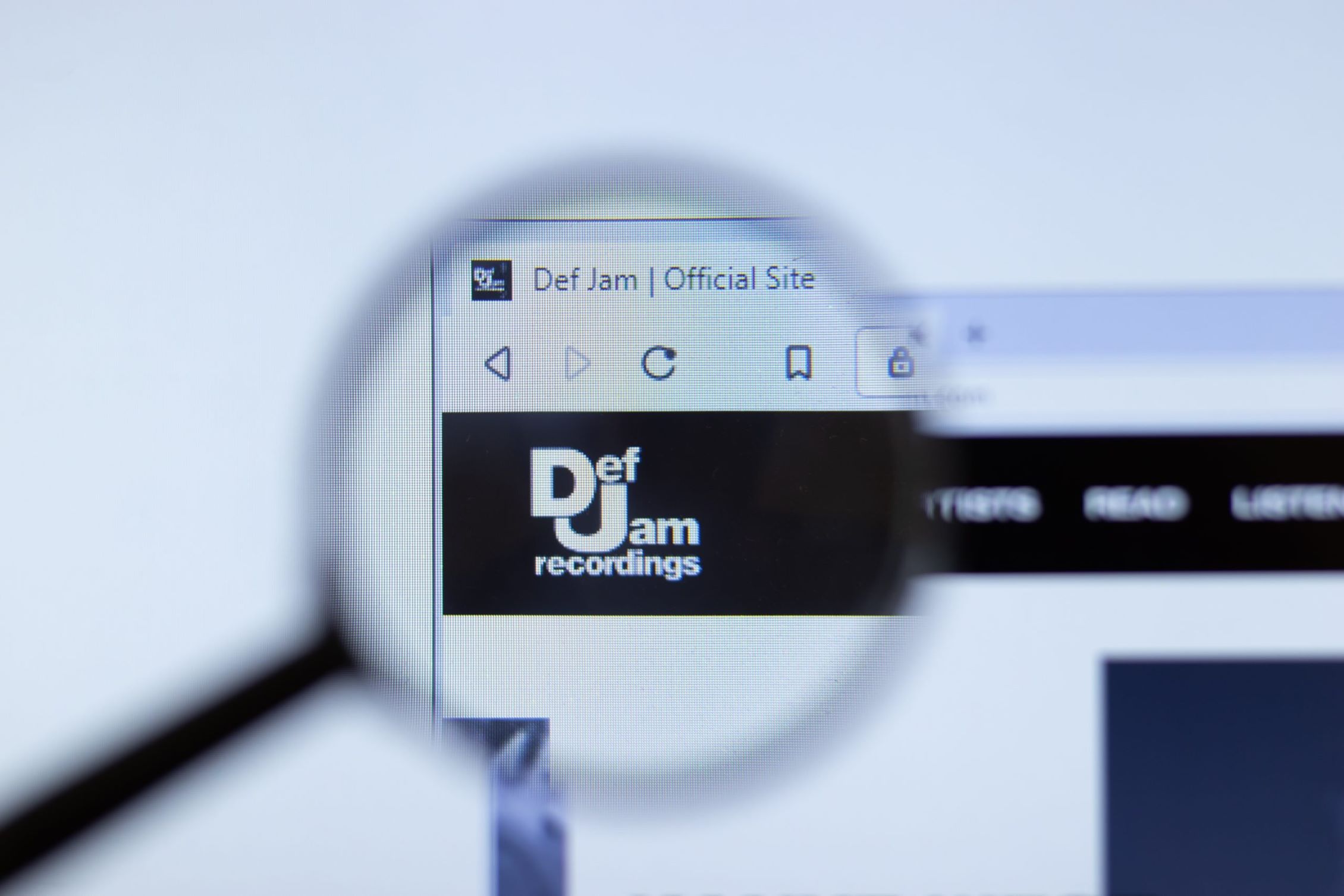

Record Label
Who Owns Def Jam Record Label
Published: January 25, 2024
Discover who owns Def Jam Record Label and get insights into the top players in the music industry.
(Many of the links in this article redirect to a specific reviewed product. Your purchase of these products through affiliate links helps to generate commission for AudioLover.com, at no extra cost. Learn more)
Table of Contents
Introduction
The music industry is home to numerous record labels, each with its own unique history and contribution to the world of music. One such iconic record label is Def Jam, known for its influential place in hip hop and urban music. Def Jam has been at the forefront of discovering and promoting groundbreaking artists, shaping the landscape of popular music.
Established in 1984, Def Jam has played a significant role in bringing urban music to the mainstream. From the pioneering days of hip hop to the present, this record label has been a driving force in the industry, consistently delivering chart-topping hits and launching the careers of some of the most legendary artists in the genre.
In this article, we will delve into the founding of Def Jam, its early successes, its acquisition by Universal, and its current ownership structure. We will also explore the role of Universal Music Group as the major stakeholder and other shareholders who have contributed to the label’s success.
Join us as we take a deep dive into the captivating world of Def Jam and discover the visionaries and artists that have shaped its legacy. Explore how this record label has not only defined genres but also influenced popular culture around the globe. From its humble beginnings to its current status, Def Jam continues to pave the way for the future of urban music.
Founding of Def Jam
Def Jam was founded in 1984 by Rick Rubin and Russell Simmons, two visionary entrepreneurs who recognized the potential of hip hop as a genre that resonated with audiences in a unique way. Rubin, a music producer known for his work in rock and punk, partnered with Simmons, a business-savvy impresario, to create a label that would give a platform to emerging hip hop artists.
The label’s first official release was the single “It’s Yours” by T La Rock and Jazzy Jay. This marked the beginning of Def Jam’s mission to introduce innovative and groundbreaking music to the world. Their early success came with the signing of iconic hip hop group, the Beastie Boys, and the release of their critically acclaimed debut album, “Licensed to Ill,” which remains one of Def Jam’s most successful releases to this day.
Def Jam’s impact on the music industry was further solidified with the signing of artists like LL Cool J, Public Enemy, and Run-D.M.C. These acts not only became synonymous with the label but also helped shape the future of hip hop and urban music as a whole. With their unique styles and thought-provoking lyrics, these artists pushed boundaries and challenged the status quo, bringing social and political issues to the forefront of popular culture.
During its early years, Def Jam demonstrated a commitment to nurturing talent and providing artists with creative freedom. Russell Simmons and Rick Rubin fostered an environment that allowed artists to express themselves authentically, leading to the development of a distinct Def Jam sound. Their dedication to artist development and their ability to identify and sign innovative artists set the foundation for the label’s success.
By the end of the 1980s, Def Jam had gained a reputation as the leading label in hip hop, establishing its dominance and influence in the genre. The label’s roster continued to expand, featuring acts such as EPMD, Slick Rick, and Oran “Juice” Jones, among others. Def Jam became a powerhouse in the music industry, paving the way for future labels to embrace the urban music movement.
The founding of Def Jam not only marked the birth of a record label but also represented a cultural shift. It provided a platform for artists from diverse backgrounds to share their stories and experiences, subsequently shaping the landscape of popular music. Def Jam’s impact during its formative years laid the groundwork for its continued success and influence in the decades that followed.
Early Successes
Def Jam’s early years were marked by a string of groundbreaking successes that solidified the label’s position as a pioneer in the hip hop genre. The talent roster was filled with artists who would go on to become legends, cementing Def Jam’s reputation for discovering and nurturing some of the most influential voices in music.
One of the label’s first notable triumphs was the release of the Beastie Boys’ debut album, “Licensed to Ill,” in 1986. This album showcased the Beastie Boys’ infectious energy and playful lyrics, propelling them to superstardom and becoming the first hip hop album to top the Billboard 200 chart. Its success not only showcased the massive commercial potential of hip hop but also solidified Def Jam’s ability to break new ground.
Another pivotal moment for Def Jam came with the signing of LL Cool J, a young rapper from Queens, New York. LL Cool J’s debut album, “Radio,” released in 1985, catapulted him to stardom and established him as one of the top talents in the industry. The album’s lead single, “I Can’t Live Without My Radio,” showcased LL Cool J’s charisma and lyrical prowess, further elevating his status as a hip hop icon. With his undeniable presence and talent, LL Cool J became one of Def Jam’s most iconic artists, setting the stage for a long and successful career.
Def Jam’s commitment to pushing boundaries and addressing societal issues was exemplified by the signing of Public Enemy. Known for their politically charged lyrics and powerful messaging, Public Enemy became the voice of a generation with their album “It Takes a Nation of Millions to Hold Us Back.” Released in 1988, the album received critical acclaim and tackled issues of racism, social injustice, and the struggles faced by the African American community. Public Enemy’s impact went beyond music, as they used their platform to raise awareness and ignite conversations about important social issues.
Another noteworthy early success for Def Jam came in the form of the collaboration between Run-D.M.C. and Aerosmith on the groundbreaking track “Walk This Way.” This fusion of rock and rap not only introduced hip hop to a broader audience but also led to the revitalization of Aerosmith’s career. The song’s massive success laid the foundation for future collaborations between artists from different genres, showcasing Def Jam’s commitment to innovation and genre-bending creativity.
These early successes established Def Jam as a force to be reckoned with in the music industry. The label’s willingness to take risks and champion artists who pushed the boundaries of the genre set the stage for their continued impact on the music landscape. Def Jam’s early triumphs not only catapulted artists to stardom but also helped shape the trajectory of popular music, leaving a lasting legacy that continues to resonate today.
Acquisition by Universal
In 1999, Def Jam underwent a significant change when it was acquired by Universal Music Group, one of the largest music conglomerates in the world. The acquisition marked a new chapter for Def Jam, bringing it under the umbrella of a major corporate entity while still maintaining its distinct identity and creative autonomy.
Universal’s acquisition of Def Jam was driven by a desire to solidify its position in the urban music market. Recognizing Def Jam’s unparalleled success and influence in hip hop and urban music, Universal saw an opportunity to expand its reach and diversify its roster. By integrating Def Jam into its portfolio, Universal gained access to a wealth of talent and a dedicated fanbase.
The acquisition allowed Def Jam to tap into Universal’s extensive resources and global distribution network. With Universal’s support, Def Jam artists gained increased visibility and exposure on a global scale. The label was able to further expand its reach and connect with audiences around the world, solidifying its position as one of the most influential labels in the industry.
Under Universal’s ownership, Def Jam continued to thrive, signing new talent and releasing hit records. Notable artists such as Jay-Z, Kanye West, Rihanna, and Justin Bieber joined the label and achieved great success. The collaboration between Def Jam and Universal facilitated the growth and development of artists, resulting in a series of chart-topping albums and groundbreaking musical projects.
While the acquisition by Universal brought about new opportunities, it also raised concerns among some fans and industry insiders. There were fears that Def Jam’s unique identity and creative freedom would be compromised under a major corporate structure. However, the label’s leadership, in collaboration with Universal, worked hard to strike a balance between maintaining the label’s independence and leveraging the resources and support provided by its parent company.
The acquisition by Universal played a vital role in expanding Def Jam’s reach and influence in the global music market. It provided the label with the necessary backing and resources to continue breaking barriers and supporting innovative artists. Under Universal’s ownership, Def Jam has remained a dominant force in urban music, continually evolving to adapt to the changing industry landscape.
Today, Def Jam stands as a testament to the successful integration of a legendary independent label into a major corporate structure. The acquisition by Universal opened up new avenues for growth and allowed Def Jam to continue its legacy of discovering and nurturing groundbreaking talent while reaching a wider audience around the world.
Ownership Structure
The ownership structure of Def Jam has evolved over the years as a result of various acquisitions and changes in the music industry landscape. Currently, Def Jam operates under the umbrella of Universal Music Group (UMG), one of the world’s largest music conglomerates.
UMG, a subsidiary of the French media company Vivendi, is home to an extensive roster of record labels, including Def Jam. As a major stakeholder, UMG provides Def Jam with the necessary resources, distribution channels, and global reach to support its artists and propel their success.
Within UMG’s ownership structure, Def Jam operates as a distinct entity, retaining its own identity, A&R (Artists and Repertoire) team, and creative decision-making processes. This autonomy allows Def Jam to continue nurturing and promoting artists in alignment with its founding principles and musical legacy.
Beyond UMG, there are other key stakeholders that have played a significant role in Def Jam’s ownership structure. One notable shareholder is Russell Simmons, who co-founded Def Jam with Rick Rubin. Although Simmons has since stepped away from the day-to-day operations of the label, his contributions and influence continue to resonate within the company.
Furthermore, through its partnership with UMG, Def Jam benefits from the expertise and support of various executives and industry professionals. These individuals aid in the overall management and strategic direction of the label, ensuring that its objectives align with the broader goals of UMG.
The ownership structure of Def Jam reflects the symbiotic relationship between an iconic music label and a major corporate entity. This collaboration allows for the continued success and growth of Def Jam while benefiting from the resources and global reach provided by UMG.
Despite changes in ownership over the years, Def Jam has remained true to its roots and its commitment to urban music. The label’s ownership structure ensures that it can continue to discover, develop, and promote artists who push the boundaries and shape the future of hip hop and urban music.
Universal Music Group
Universal Music Group (UMG) is a global music corporation and one of the most influential players in the music industry. Founded in 1934, UMG has grown over the years to become a powerhouse, with a diverse portfolio of record labels, including the renowned Def Jam.
As a major label and distributor, UMG operates on a global scale, with a presence in over 60 countries. The company boasts an extensive catalog of music across various genres and is home to some of the most successful artists in the world.
UMG’s ownership of Def Jam provides the label with access to an array of resources and support. This includes marketing, promotion, distribution, and financial backing that can help propel the success of Def Jam’s artists. UMG’s vast global network allows for the international exposure and reach that is crucial in today’s music landscape.
Furthermore, UMG offers various services and infrastructure to its labels, including technology-driven analytics and insights to inform decision-making, as well as licensing and synchronization opportunities for placement of music in film, television, and advertising.
UMG has also embraced the digital revolution, recognizing the power of streaming services and digital platforms in reaching audiences. Through its partnerships with streaming platforms like Spotify, Apple Music, and YouTube, UMG has been at the forefront of digital distribution, enabling its artists to reach a vast and diverse audience.
With an extensive artist roster and a commitment to developing talent, UMG has nurtured some of the most successful musicians in the industry. The company is known for its artist-friendly approach, emphasizing collaboration and providing resources for creative growth.
Beyond its role as a music label, UMG has also made significant contributions to music industry initiatives and philanthropy. The company has been actively involved in supporting organizations that promote music education, diversity, and global advocacy for creators’ rights.
Universal Music Group’s ownership of Def Jam has allowed the label to thrive and expand its reach. UMG’s expertise, global reach, and resources have positioned Def Jam as a key player in the urban music genre, and ensured that the label’s legacy of discovering and promoting groundbreaking artists can continue for years to come.
Other Shareholders
In addition to Universal Music Group (UMG) and its parent company Vivendi, there are other shareholders who have played a significant role in the ownership structure of Def Jam. These stakeholders have contributed to the label’s success and have helped shape its trajectory in the music industry.
Russell Simmons, one of the co-founders of Def Jam, remains an influential figure within the label’s history and ownership. Although Simmons is no longer actively involved in the day-to-day operations, his contributions and vision were instrumental in establishing Def Jam’s reputation as a pioneering force in hip hop and urban music.
Another notable stakeholder is Rick Rubin, the other co-founder of Def Jam. Rubin, a renowned music producer and industry veteran, played a crucial role in shaping Def Jam’s early years and defining its unique sound. His commitment to authenticity and artistic innovation set the foundation for the label’s success and continues to be felt in its music to this day.
Over the years, other individuals and entities have invested in, partnered with, or held shares in Def Jam. These have included prominent music industry executives, artists, and strategic investors who have recognized the enduring influence and commercial potential of the label.
While the specific details of these shareholders may not be publicly disclosed, their involvement has contributed to Def Jam’s expansion, financial stability, and artistic growth. Their support and resources have allowed the label to continue discovering and nurturing talented artists, contributing to the diverse range of music that Def Jam is known for.
Combined with Universal Music Group’s ownership, these other shareholders have played a vital role in preserving Def Jam’s legacy and ensuring its continued success in the ever-changing music industry.
Def Jam’s ownership structure, supported by a variety of stakeholders, highlights the collaborative efforts and shared vision of those invested in the label’s growth and artistic development. The collective expertise, influence, and resources of these shareholders have contributed to Def Jam’s enduring impact and its ability to adapt and thrive in a dynamic and competitive industry.
Def Jam’s Current Status
Def Jam, a label that has left an indelible mark on the music industry, continues to be a driving force in hip hop and urban music to this day. With its deep-rooted history and influential roster of artists, Def Jam remains at the forefront of shaping popular culture and defining trends in contemporary music.
Under the ownership of Universal Music Group (UMG), Def Jam has leveraged its resources and global reach to maintain its position as a powerhouse label. The label’s commitment to artist development and its ability to identify and sign groundbreaking talent has resulted in numerous chart-topping albums and breakthrough artists.
Def Jam has expanded its roster to include a diverse range of artists, representing different styles and perspectives within the urban music landscape. From established legends such as Jay-Z and Kanye West to rising stars like Logic and Vince Staples, Def Jam continues to foster creativity and give a platform to voices that push boundaries.
The label’s dedication to innovation and genre-bending collaborations remains steadfast. Def Jam artists have consistently embraced new musical styles and trends, adapting to the ever-evolving tastes of their audience. This willingness to explore new territories has allowed Def Jam to maintain a fresh and relevant presence in the music industry.
Furthermore, Def Jam has embraced the digital era, utilizing streaming platforms and social media to connect with fans worldwide. The label’s artists have leveraged these platforms to engage directly with their audience, creating a sense of community and allowing for a more intimate connection between artists and fans.
In recent years, Def Jam has also expanded its scope beyond music, venturing into film and television production. The label’s collaboration with industry leaders has resulted in successful projects that showcase the artistic prowess of Def Jam talent beyond the music realm.
As the music industry continues to evolve, Def Jam remains poised to adapt and thrive. With the backing of Universal Music Group, the support of passionate shareholders, and a strong roster of talented artists, Def Jam is well-equipped to continue its legacy as a trailblazer in urban music.
Def Jam’s current status is a testament to its enduring influence and commitment to highlighting the diverse voices and stories within the urban music genre. As it looks to the future, Def Jam will undoubtedly continue to shape the trajectory of popular music and inspire future generations of artists.
Conclusion
Def Jam, the iconic record label founded in 1984, has left an indelible mark on the music industry and popular culture as a whole. From its humble beginnings to its current status, Def Jam has been a catalyst for change, pushing the boundaries of hip hop and urban music and launching the careers of legendary artists.
With the founding vision of Russell Simmons and Rick Rubin, Def Jam became synonymous with innovation and authenticity. The label’s early successes, including breakout albums by the Beastie Boys, LL Cool J, and Public Enemy, solidified its position as a driving force in the genre.
The acquisition by Universal Music Group (UMG) opened new doors for Def Jam, providing the label with resources, global reach, and support while preserving its distinct identity and creative autonomy. The collaboration between Def Jam and UMG has resulted in continued success and the ability to nurture and promote groundbreaking artists across different genres within urban music.
Def Jam’s ownership structure, which includes key stakeholders such as Russell Simmons and renowned producer Rick Rubin, underscores the label’s commitment to creative freedom and artist development. Their contributions, along with the support of other shareholders, have been instrumental in shaping Def Jam’s trajectory and maintaining its position as a dominant force in the industry.
Today, Def Jam stands as a symbol of resilience and adaptability. The label has diversified its roster, embracing new genres and exploring collaborations that bridge musical boundaries. Its embrace of digital platforms has allowed Def Jam to connect with audiences around the world and foster a sense of community among artists and fans.
As the music industry continues to evolve, Def Jam remains at the forefront of the urban music genre. With a commitment to artist development, a forward-thinking approach, and the backing of UMG, Def Jam is well-positioned to continue shaping the future of popular music.
In conclusion, Def Jam’s unparalleled legacy as a record label dedicated to urban music speaks volumes about its influence and lasting impact. From its founding to its current status, Def Jam has consistently pushed the boundaries of creativity, championed new voices, and contributed to the rich tapestry of music history. As the label continues to evolve and adapt, there is no doubt that it will leave an indelible mark on the industry for years to come.



